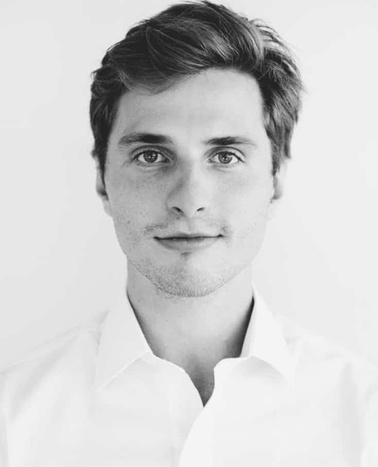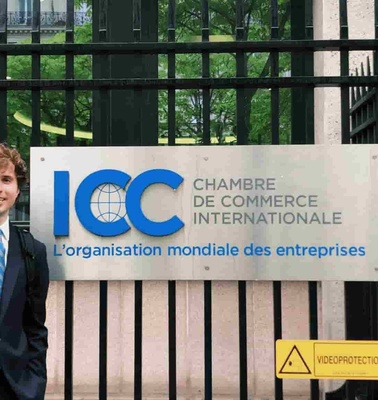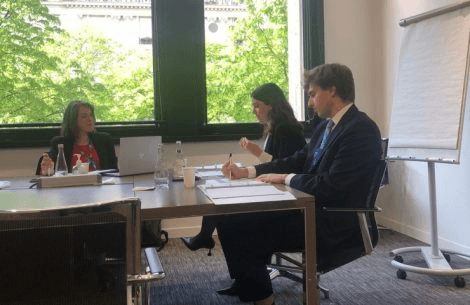
John Canning
My name’s John Canning and I’m from Chicago. I’m currently a third-year law student at Villanova University School of Law in Philadelphia. While at Villanova, I’ve had the opportunity to intern at a District Attorney’s office, clerk for a Court of Common Pleas, and also intern with the US Securities and Exchange Commission. One day, I hope to work at an international law firm or a company that allows me to apply my knowledge of both US and international law.

"Choosing to enroll at IE University has been one of the best decisions of my entire life."
What did your professional career look like before the Master of Laws (LL.M.) at IE University? Tell us a bit about your academic and professional background.
I began my law school career at Villanova University School of Law in Philadelphia. Through Villanova, I’ve been able to complete a dual degree program to earn my juris doctor (JD) from Villanova and Master of Laws (LL. M.) from a school of my choice. In the end, I chose IE University because of its strong international reputation, the opportunity to compete on the moot court team, as well as the international student body and faculty. Also, who could turn down an opportunity to study in Madrid, one of the greatest cities in the world?
 What do you like most about the Master of Laws?
What do you like most about the Master of Laws?
My favorite part of the program is the community; everybody I’ve met comes from a different corner of the world with totally different experiences. Not only has this allowed me to learn from IE University’s excellent faculty, but also my peers and colleagues. I’ve made lifelong friends here, and for that, I’ll be forever grateful.
What has positively surprised you most about IE University and your current program?
So far, I’ve been surprised by the number of opportunities that IE University provides to students outside of the classroom. For example, being an International Dispute Resolution LL.M. student, I’ve been able to take classes at some of the top global law firms, and compete in internationally renowned arbitration moot competitions. Even better, I’ve been able to tour the various litigation hubs throughout Madrid and the European community, so the opportunities just keep coming. In just a few weeks, for example, IE University will bring my class to the International Chamber of Commerce in Paris to meet with the leading global law firms for networking and professional development.
Where would you like to work after you finish your masters? How is IE University helping you reach this goal?
My goal is to work at an international law firm that would give me the opportunity to travel and apply my knowledge at an international level. In this regard, the IE Talent & Careers team has been incredibly helpful. I’m in constant contact with my career advisor who’s helping me secure a job somewhere in Europe.
What advice would you give someone considering your program?
My advice to someone who is thinking about pursuing my program is to just do it. There are so many reasons to convince yourself not to step outside of your comfort zone, but once you do, that’s when you learn the most. That’s why choosing to enroll at IE University has been one of the best decisions of my entire life, so I’d recommend it to anyone who is interested in obtaining a practical international legal education.
Why did you choose your specialization? What motivated you to go down that path?
I decided to specialize in International Dispute Resolution for my LL. M. because I have a passion for litigation and oral advocacy. When researching IE Law School, I also noticed that the specialization allowed students to participate in the moot court team. Immediately I knew that I wanted to be part of this community and take my advocacy skills to the international level. All of my expectations for the program have been exceeded, with many opportunities to expand my knowledge of international dispute resolution both inside and outside of the classroom.